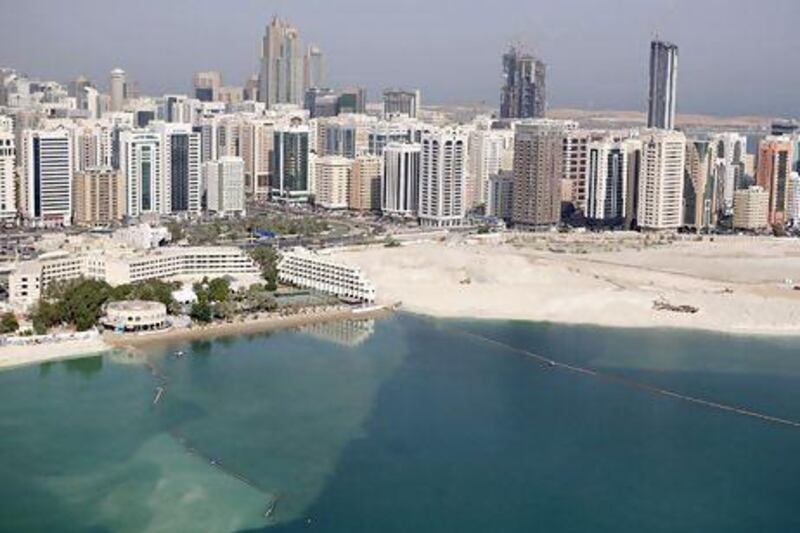More measured spending has helped to bring down the Abu Dhabi Government's fiscal oil break-even price to US$95 per barrel this year, estimates Bank of America Merrill Lynch.
It follows a jump from $33 per barrel in 2007 to $121 in 2009 as the Abu Dhabi Government extended cash support to help debt-ridden Dubai, the bank said in a report released yesterday.
"Gradual fiscal consolidation though on-budget capital expenditure rationalisation and normalisation of support extended in the emirate has been bringing down the Abu Dhabi central government fiscal oil break-even price to below $100 per barrel," Jean-Michel Saliba, an economist covering Eastern Europe, Middle East and Africa at BAML wrote in the report.
Abu Dhabi has gradually withdrawn much of the spending largesse it rolled out in the wake of the global financial crisis of 2009. That included a US$20 billion financing package from the Abu Dhabi Government and the Central Bank to help out Dubai and almost $10bn in assistance in 2011 to Aldar, the property developer.
But in a report last month, the IMF noted the UAE - of which Abu Dhabi is the biggest spender - was doing more than other GCC states to reduce its vulnerability to a slowdown in oil prices.
BAML said it expected on-budget capital spending to remain in check this year as execution of projects shifted to the wider public sector. It meant a conservative fiscal surplus of 2.7 per cent of GDP and increased fiscal space, it said.
The Executive Council gave the green light to a number of big projects in January last year, including Abu Dhabi Cleveland Clinic and the Midfield terminal at Abu Dhabi International Airport. The federal Government also increased public sector wages from the start of last year.
BAML said a new debt management policy reinforced an existing expectation of support for government-related companies in the event of financing trouble.
The Abu Dhabi Government announced a policy last year clarifying when and how it would guarantee the debt of companies with ties to the Government.
Explicit guarantees granted on a case-by-case basis would need approval from the Executive Council, it said.
The policy "does not represent a shift in the sovereign support to strategic government-related entities", wrote Mr Saliba.
"In practice, implicit support is likely to continue for strategic entities central to the emirate's diversification drive."
As part of Abu Dhabi's drive to broaden the mix of its economy away from oil, the Government transferred as much as Dh180 billion in capital contributions to the Tourism Development & Investment Company, Mubadala Development and International Petroleum Investment Company between 2002 and last year, estimated BAML.
Separately, the UAE Central Bank released data yesterday showing bank deposits rose by 0.4 per cent to Dh1.25 trillion last month from the month before. Total bank loans and advances grew by 0.8 per cent to Dh1.13 trillion over the same period.
On an annual basis, the 5.2 per cent expansion in lending was the fastest since October 2009, according to Giyas Gokkent, the chief economist at National Bank of Abu Dhabi.
Money supply M1, which includes currency in circulation plus monetary deposits, edged up 1.6 per cent to Dh341.4bn last month from the previous month. M2, which also includes quasi monetary deposits, rose by 1 per cent to Dh917.9bn. M3, which also includes government deposits at banks and the Central Bank, increased by 0.1 per cent to Dh1.17tn.





